‘That Christmas’. Photo: Netflix.
Premiering on Netflix December 4th is the new animated holiday movie ‘That Christmas’, which was written by ‘Love Actually’ director Richard Curtis, based on his own book, ‘That Christmas and Other Stories’. Directed by Simon Otto, the film features the voices of Brian Cox (‘Succession’), Fiona Shaw (‘Star Wars: Andor’), Jodie Whittaker (‘Doctor Who’), and Bill Nighy (‘Living’).
Moviefone recently had the pleasure of speaking with writer Richard Curtis and director Simon Otto about their work on ‘That Christmas’, adapting Curtis’ novel, Otto’s directorial debut, what he learned from working with Curtis, the challenges of making a Christmas movie, their favorite characters, and why they are excited to have audiences watch the film.
Related Article: Movie Review: ‘That Christmas’
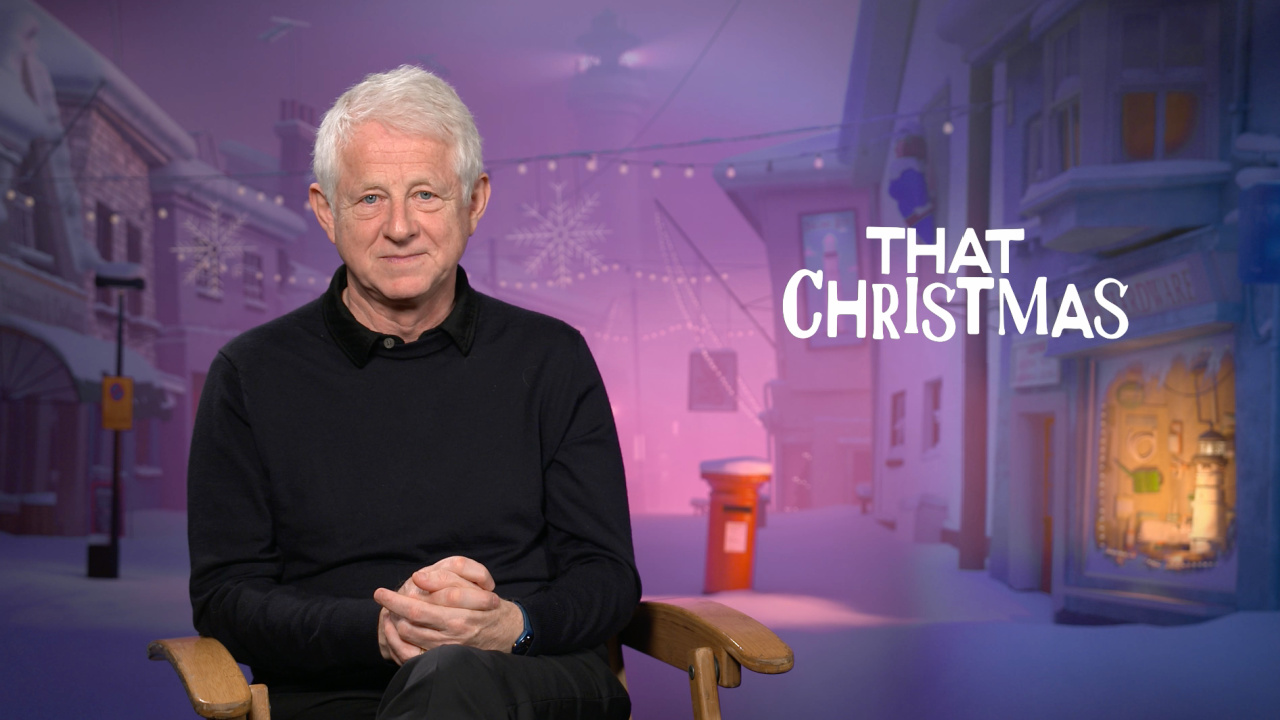
Netflix’s ‘That Christmas’ writer Richard Curtis.
Moviefone: To begin with, Richard, can you talk about how ‘That Christmas’ came to be?
Richard Curtis: Well, I’ve got four kids, so I’ve read them 500 children’s books 500 times and eventually I thought I’d write one myself. So, I wrote one and then two years later had another idea. I wrote three books and then a producer friend of mine just said, “I think these might make a lovely film.” I was so delighted at the opportunity to make an animated film. It’s something I’d always wanted to do, but kind of never thought I would. So, it’s been a real Christmas present to me to get the movie made.
MF: Simon, this is your directorial debut, can you talk about why you wanted to make a Christmas movie for your first film?
Simon Otto: I mean, it’s always a bit happenstance in the way this works. I had really wanted to direct a feature after doing some television episodes. I’ve been talking to this company called Locksmith Animation who did ‘Ron’s Gone Wrong’ during this time, and they wanted me to be head of animation on one of their projects. I said, “Really, my next step is directing, and I’d love to see if there’s something that can happen there.” So, I was working on multiple projects, and they came back to me with this children’s book called ‘The Empty Stocking’, which they thought would make a lovely Christmas special. I thought, “Yeah, that sounds interesting. Let me have a look.” Very quickly we realized there was a second book and a third book on its way and that Richard Curtis was interested in maybe writing the screenplay. Then for me it was like, “Okay, yes, where can I sign? Where do I need to go?” In this early period, we very quickly realized that instead of doing Christmas specials, to intertwine them into one giant cinematic kind of Christmas movie, and that pitch was very easy to take around town. Netflix was immediately interested.

‘That Christmas’. Photo: Netflix.
MF: Simon, what was it like working with a filmmaker like Richard Curtis on this project?
SO: It was so many things, and first and foremost, it was like a free film school for me to be collaborating with somebody with so much experience. But in talking with him, it was the same thing. To him it was a discovery of a completely new way of developing story, script and animation because the timeline is so different. So usually, he would write the screenplay with a producer and then find the director and then make the film. We developed this story based on his books as we were developing the visuals and the storyboards, and they were writing the script alongside our development work. So, I was able to collaborate with him on it over the first year and a half. For me, it was such a tremendous privilege to be doing this. What makes it really interesting for me was that from the get-go, not only was it going to be a movie written by one of my favorite screenwriters, but it was also an unusual type of story for animation because in animation, generally you have a single hero journey against the villain in a fantastical world. This is a multi-threaded storyline with multiple protagonists, no villains, about these three charming children’s books that told quite small moments, and we had a chance to make it big and bring the power of animation to it and make it sweeping and cinematic. What I love about Richard’s writing is, besides a sense of wish fulfillment and a real great study of characters and caricaturing real life, is that he has a way of making small moments feel big. I love that about his films, and I thought that there was something unique that we as animators could bring to that storytelling.
MF: How important was it to you to make this a family film and not just a movie for kids?
RC: Well, it’s funny. I think I’ve always been quite a sort of age democrat. When I meet people who are six and seven, I don’t think they’re stupid. In fact, I often assume they’re smarter than me. So, I think it didn’t occur to me that you would write a story and try and oversimplify emotions for kids. I feel as though if you’ve got an interesting story to tell, they will probably enjoy it as much as an adult would. So, I tried to make something that would make, as it were, my daughter and me both happy. As all the filmmakers didn’t think we’re making something for kids. They thought they’re making something as it were for us and us when we were kids.
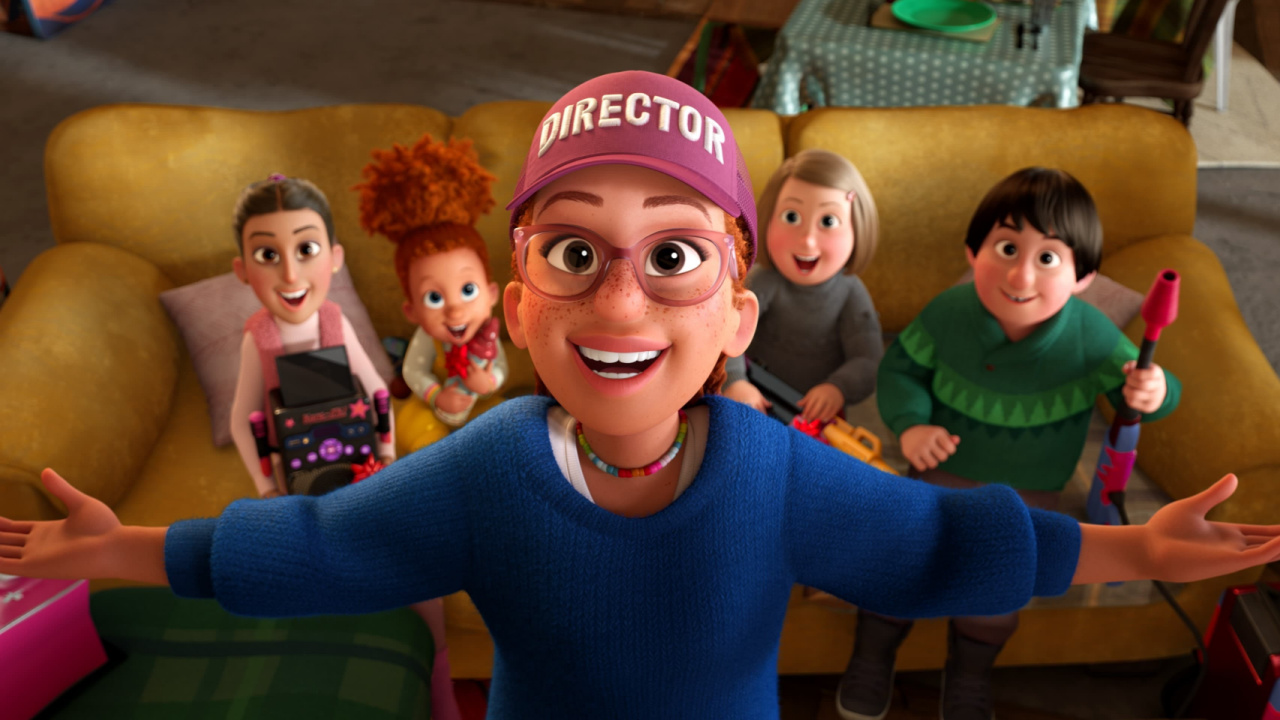
‘That Christmas’. Photo: Netflix.
MF: Simon, how important was it to you to really make a film for the whole family?
SO: I’ve always felt that I’ve loved animation ever since I was a kid, and by love, I mean I started drawing and copying drawings of the old Disney movies and really loved the world and loved the fact that this could come to life and become something real. So, the idea that you caricature the world as it is and try and be authentic and realistic about it so it’s grounded, that was important to us that we felt like it’s a place you could go visit, these are characters that you know, and these are characters that you recognize from your own life. So very early on, we very quickly agreed that we’re not making a cartoony movie that had cartoony ideas where things could happen that wouldn’t happen in the real world, with the exception of course of Santa and the reindeer, and who’s to say they’re not real? But the idea that we really wanted to believe in this world, and therefore our approach to it was all about the things that we see in our own lives and what amuses us and the idea that our movie is essentially a story where the mess up of our parents, that feels relatable to us as parents: looking away and your toddler is gone or driving into bad weather and not turning around. Some of the mistakes that the parents make are completely relatable and believable mistakes, but it’s the kids that suffer the consequences. But in our world, they’re creative kids and find a way to come around. So, telling stories that are inherently familiar and truthful but sort of combining them and trying to find funny ways to tell them is how we went about it. We never really thought about it as an animated movie, really. I mean we did. Of course, I did for sure, but in terms of writing, we didn’t.
MF: Richard, which character was the most fun to write?
RC: Do you know, it’s funny you say fun? In the book about the little boy called ‘Snow Day,’ we just sort of had a slightly sad little boy, and when we made the movie, we made him a latchkey kid with a mom who’s a nurse, who must work too hard in the local community. We had the story about his dad who lets them both down. So, I think for me, in the journey from book to screen, making that character saying, if a kid is a bit lonely and shy, what’s the three-dimensional story about how they got there? I think we found that very satisfying.
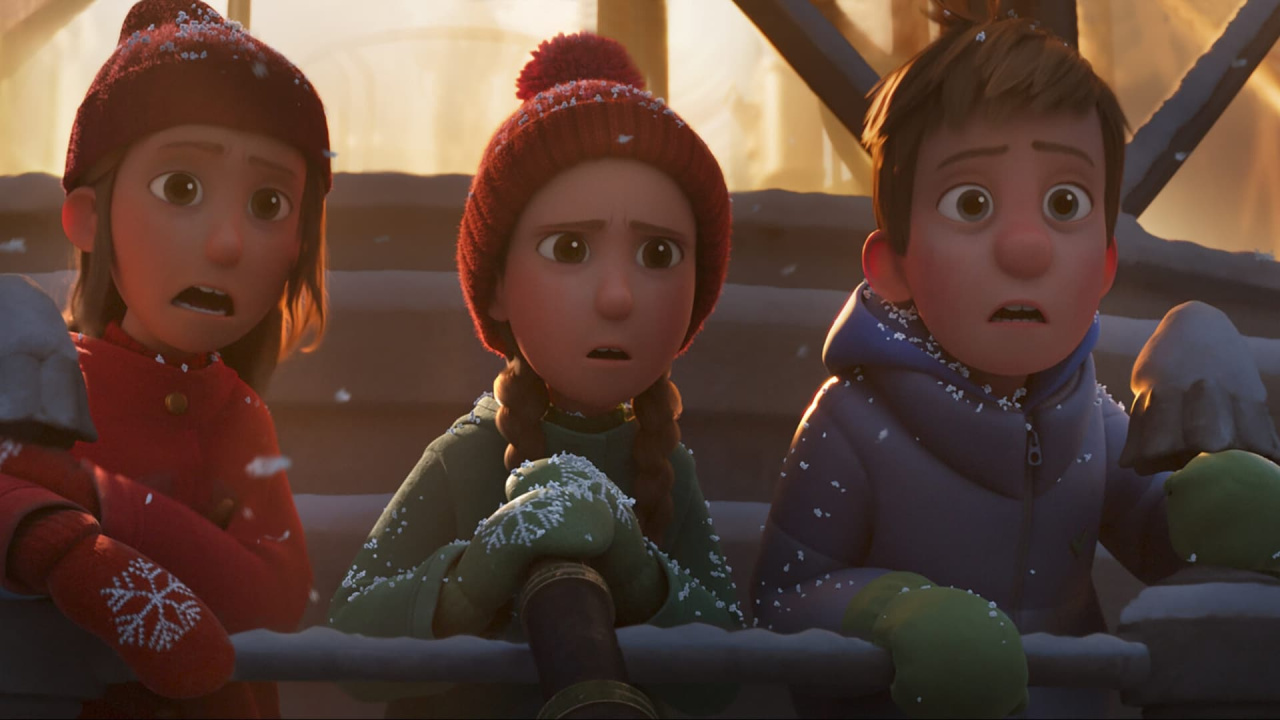
‘That Christmas’. Photo: Netflix.
MF: Simon, do you have a favorite character in this movie other than Santa Clause?
SO: I think I’m really connected with Little Danny, and the reason for that is of course, because who doesn’t understand and identify with a kid who’s left alone at Christmas? But I took my family from LA to London to make this film, and I had to take my twelve-year-old kid out of his school and stick him into an international school in London where he was the outsider, he didn’t quite have any friends. He was sad that he had to leave his life behind in LA. Seeing the journey from outsider to having friends and really loving it was close to me, and there’s a lot of tiny little things in the film that I feel close to. Then of course, we had to decide on who plays the villain as father, which you can’t really hear, but if you know it, you hear it. But the dad, when he calls to tell Danny that he’s not going to make it, that’s me. It’s my voice. So, I had to play the villain of the story, which is not really a villain at all, of course.
MF: Richard, what are you most excited for people to see with this movie?
RC: Well, I put all my work into it, but in every film the wonderful things are the things I don’t do. So, it’s just the detail in the little faces. There are things that animation can do where a child’s face can have four emotions, joy, worry, excitement, nervousness, all in a second. So, the thing I’m most excited is by people being able to, as it were, admire the art and enjoy the depth of some of the characters and their beautifully animated faces.
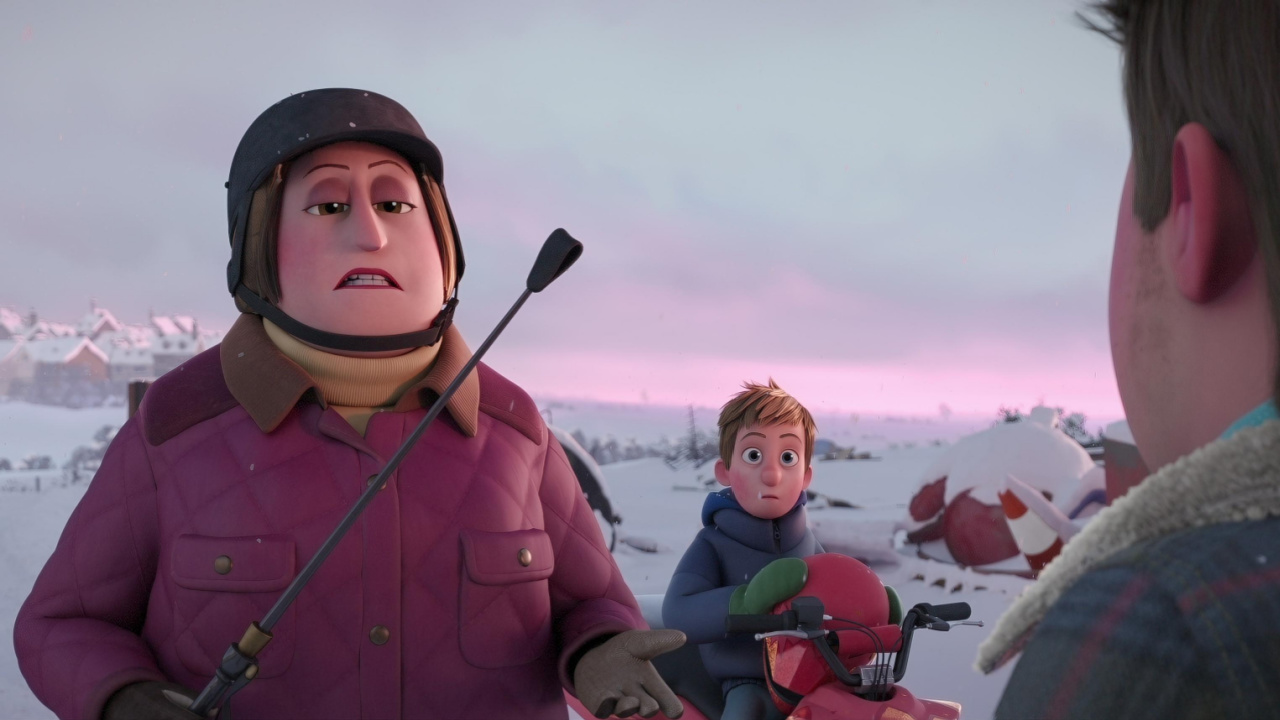
‘That Christmas’. Photo: Netflix.
MF: Finally, Simon, what are you most excited for audiences to see with this movie?
SO: I really love what our production design and character design state in terms of authenticity. I feel like it’s rare that in a movie you feel like this is based on something real and something that you could go visit. Our production designer, Justin Hutchinson-Chatburn, came from live action. He’s done both animation and live action, but he paid so much attention to the set dressing of the world, so every room of every kid tells a quite intricate story about the characters. Because it’s a multi-threaded storyline, which is unusual in animation, the fact that you can pretty much quickly understand who these characters are. Danny just recently moved into his house, so the house is not decorated. Paint swabs are still up, but it’s only his room that’s decorated because that’s the nucleus of what the mother cares about. Then Simon/Charlie stories, they have this divided bedroom. One’s naughty, the other one’s nice. One’s nice and clean, the other one’s chaotic with lots of other things. Bernadette’s world is a world of chaos and rainbows and colorful and reinvention, and I just love the authentic place and the world. I’m quite proud of that.
Interviews conducted by Krisily Fernstrom
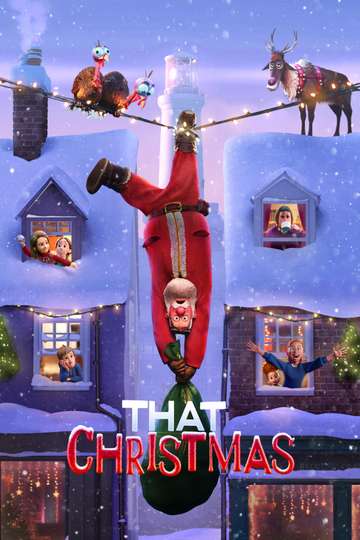
What is the plot of ‘That Christmas’?
‘That Christmas’ follows a series of entwined tales about love and loneliness, family and friends, and Santa Claus (Brian Cox) making a big mistake, not to mention an enormous number of turkeys!
Who is in the voice cast of ‘That Christmas’?
- Brian Cox as Santa Claus
- Fiona Shaw as Miss Trapper
- Jodie Whittaker as Mrs. Williams
- Bill Nighy as Lighthouse Bill
- Lolly Adefope as Mrs. McNutt
- Alex Macqueen as Mr. Forrest
- Katherine Parkinson as Mrs. Forrest
- Sindhu Vee as Mrs. Mulji

‘That Christmas’. Photo: Netflix.


























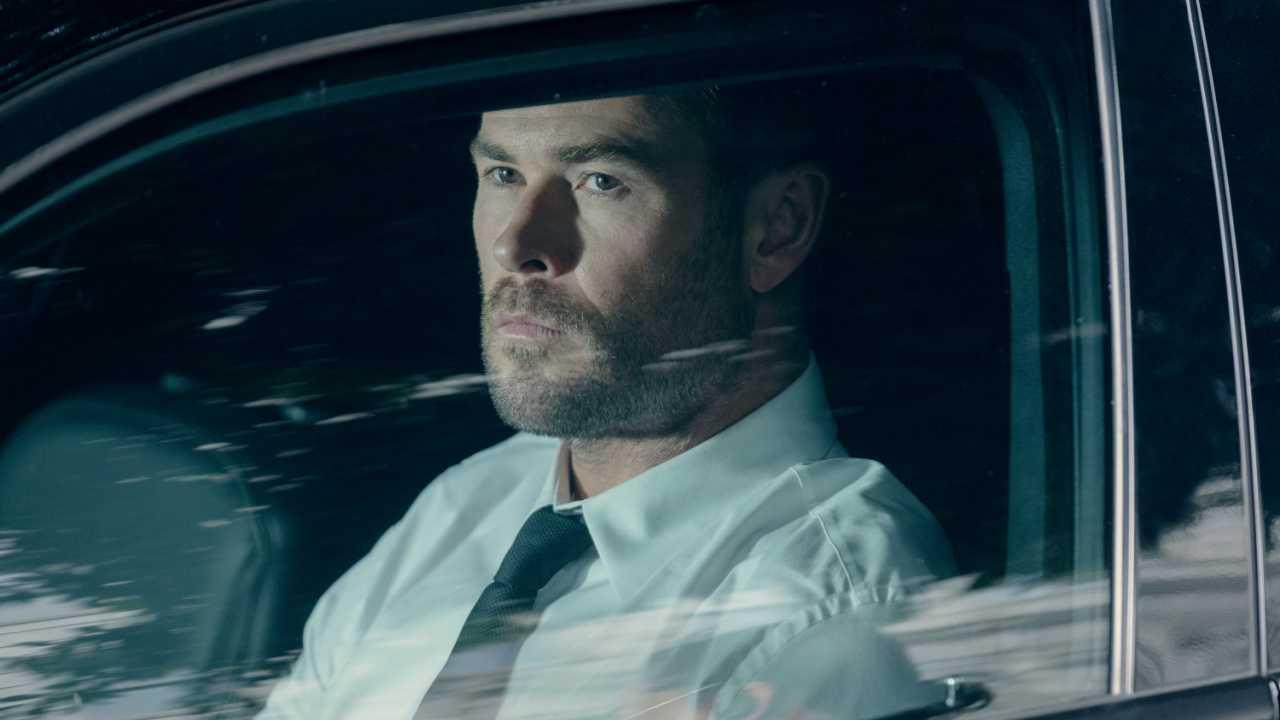
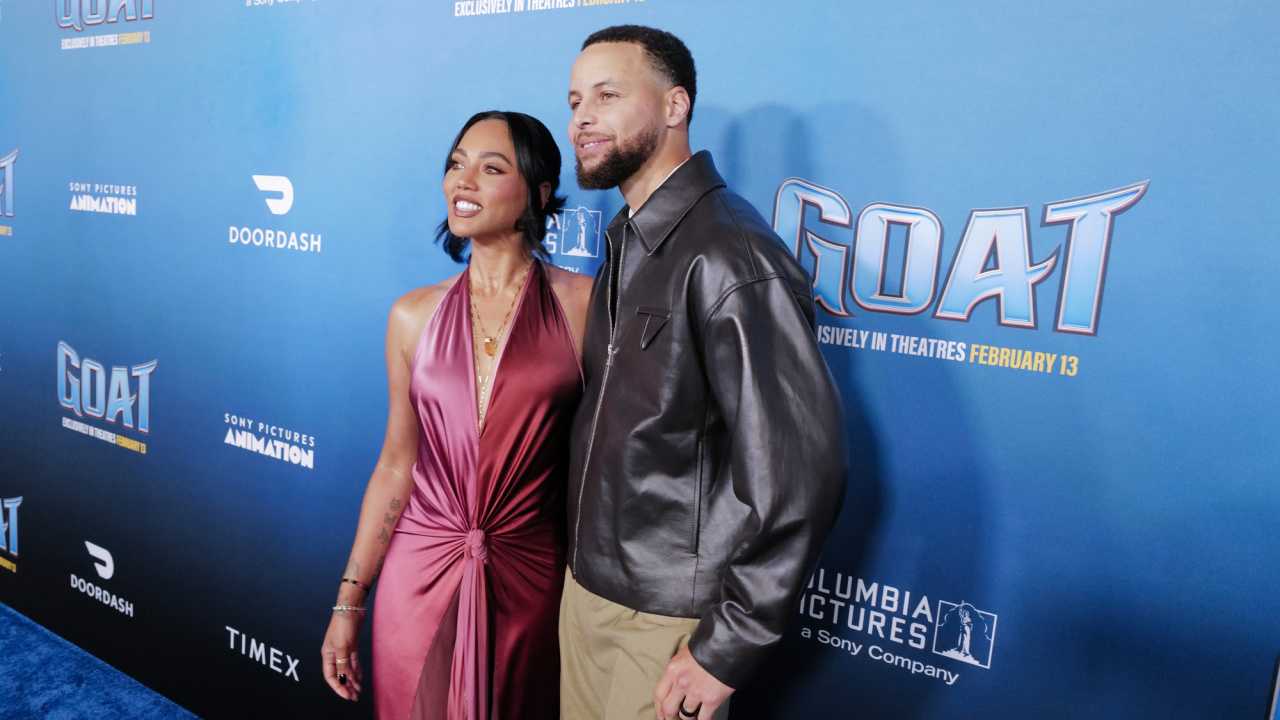
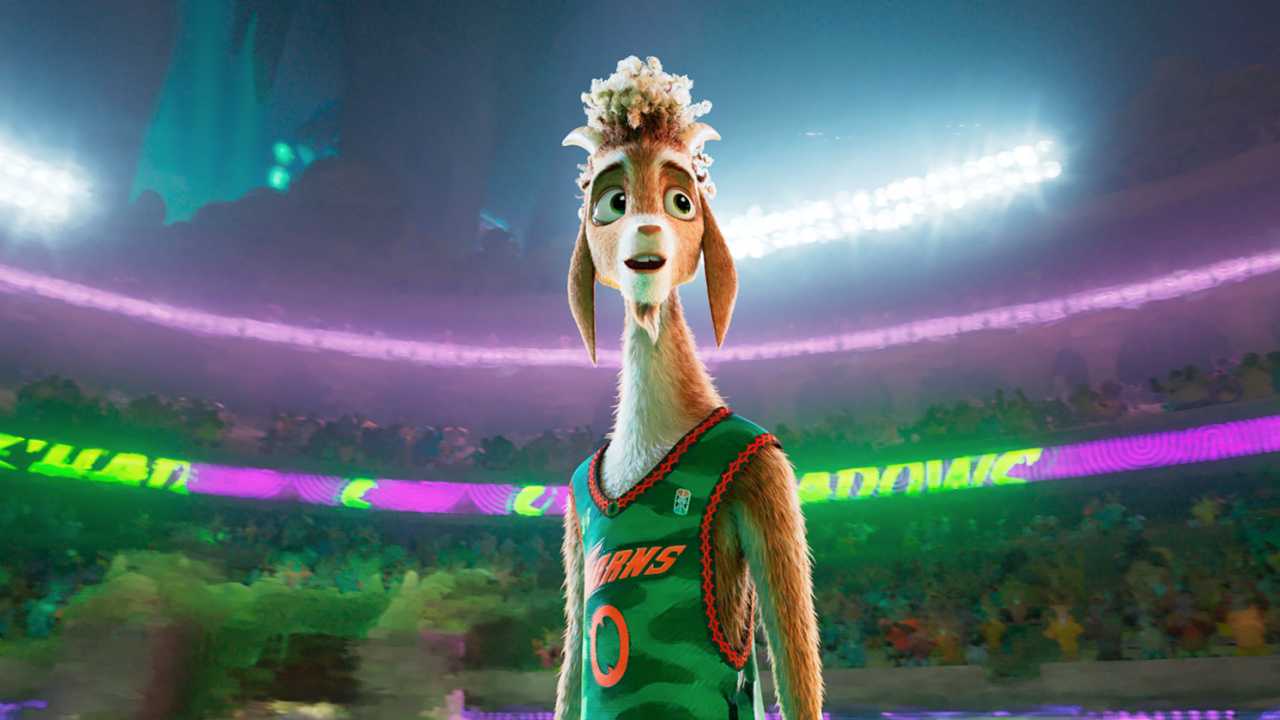
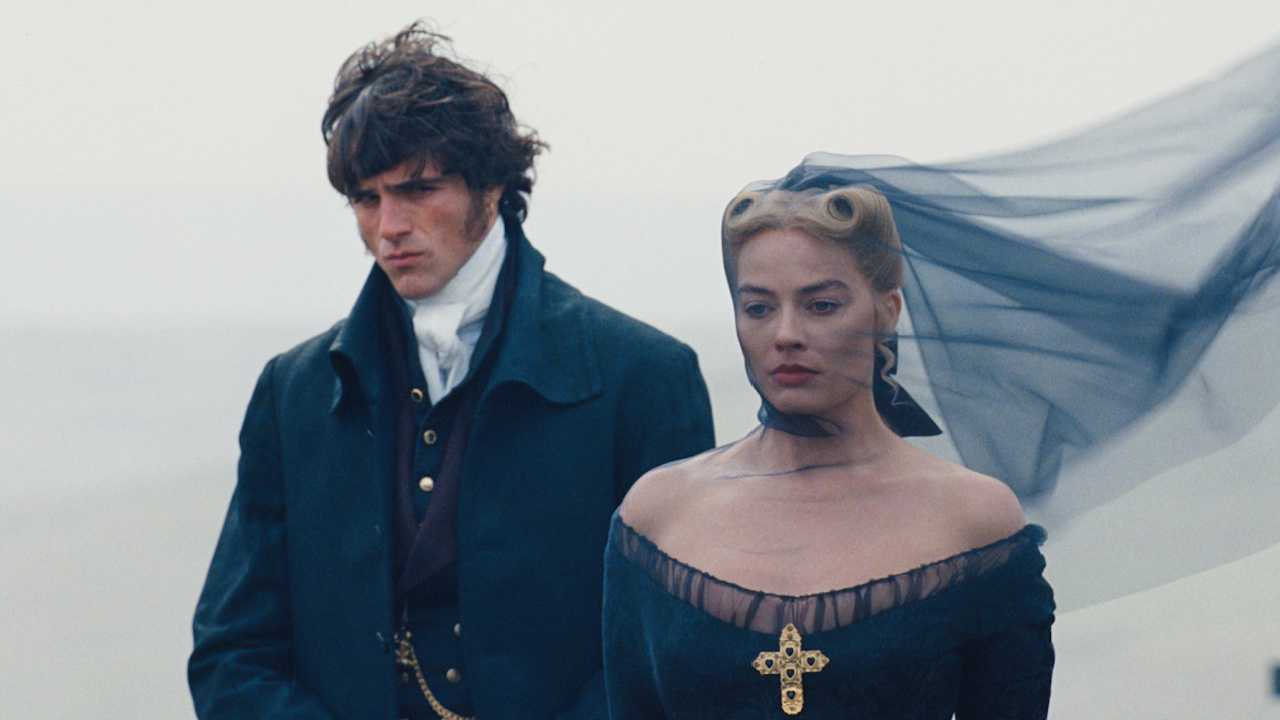

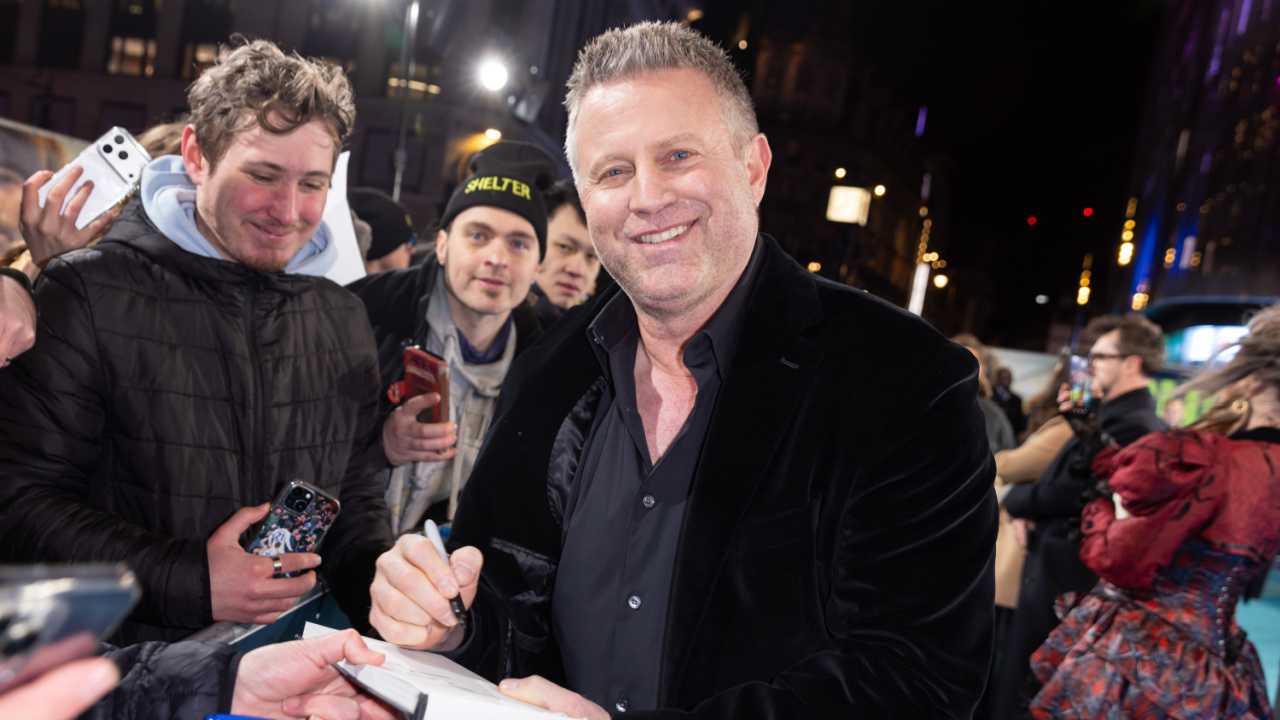

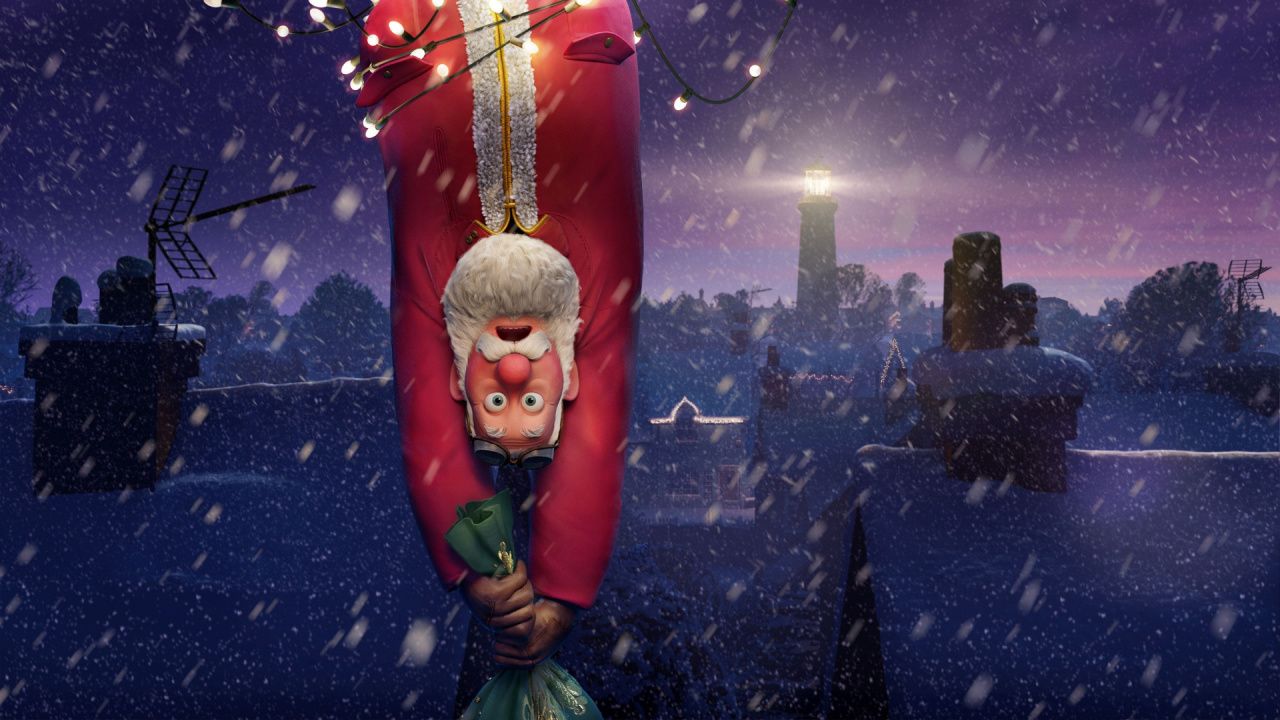

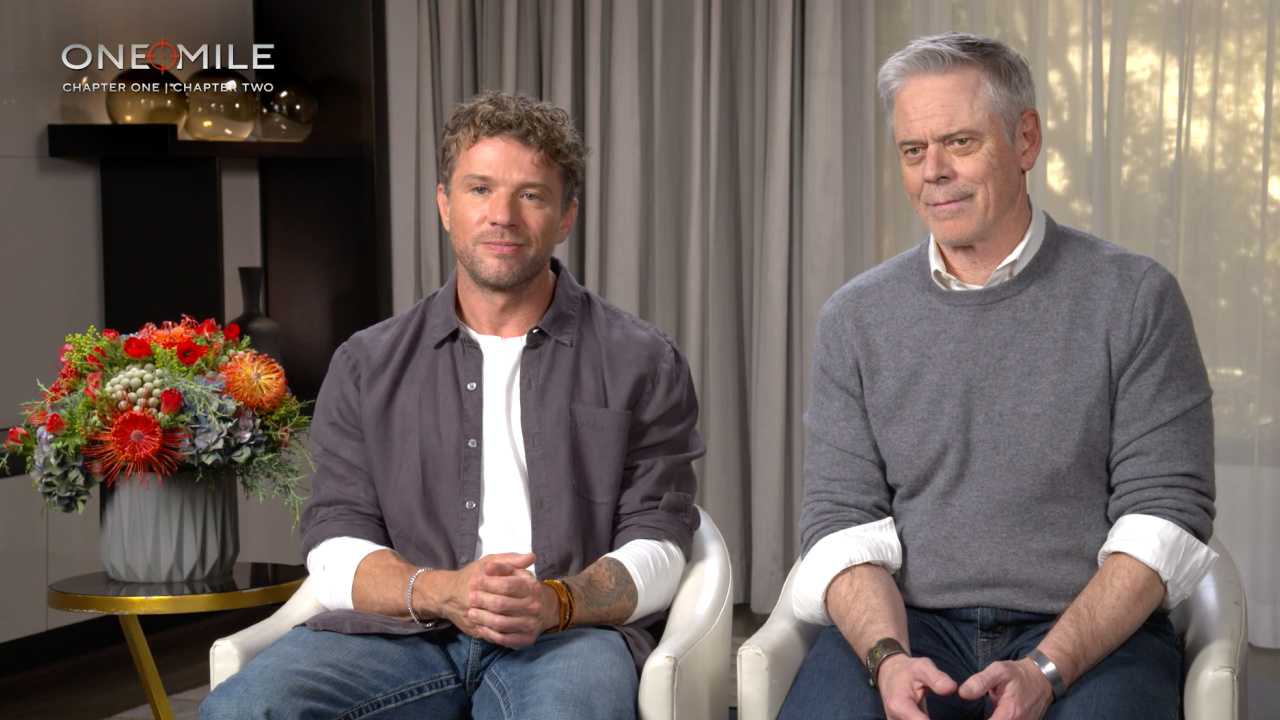
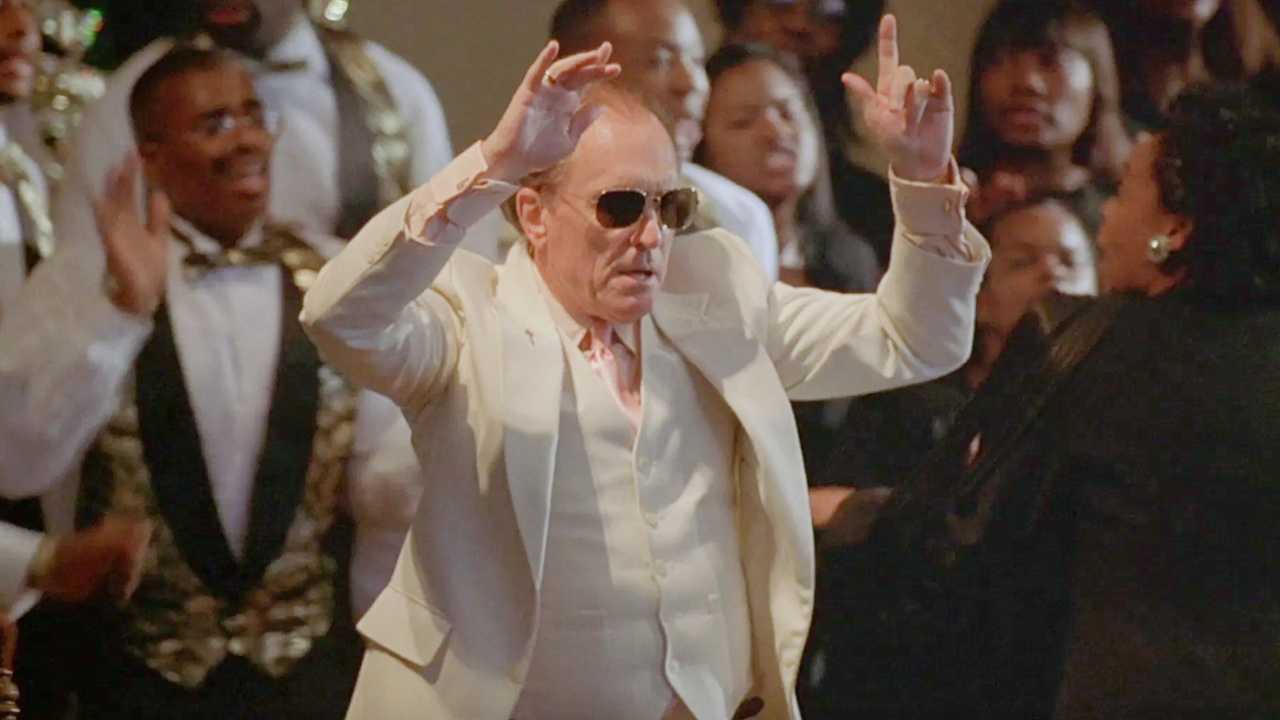
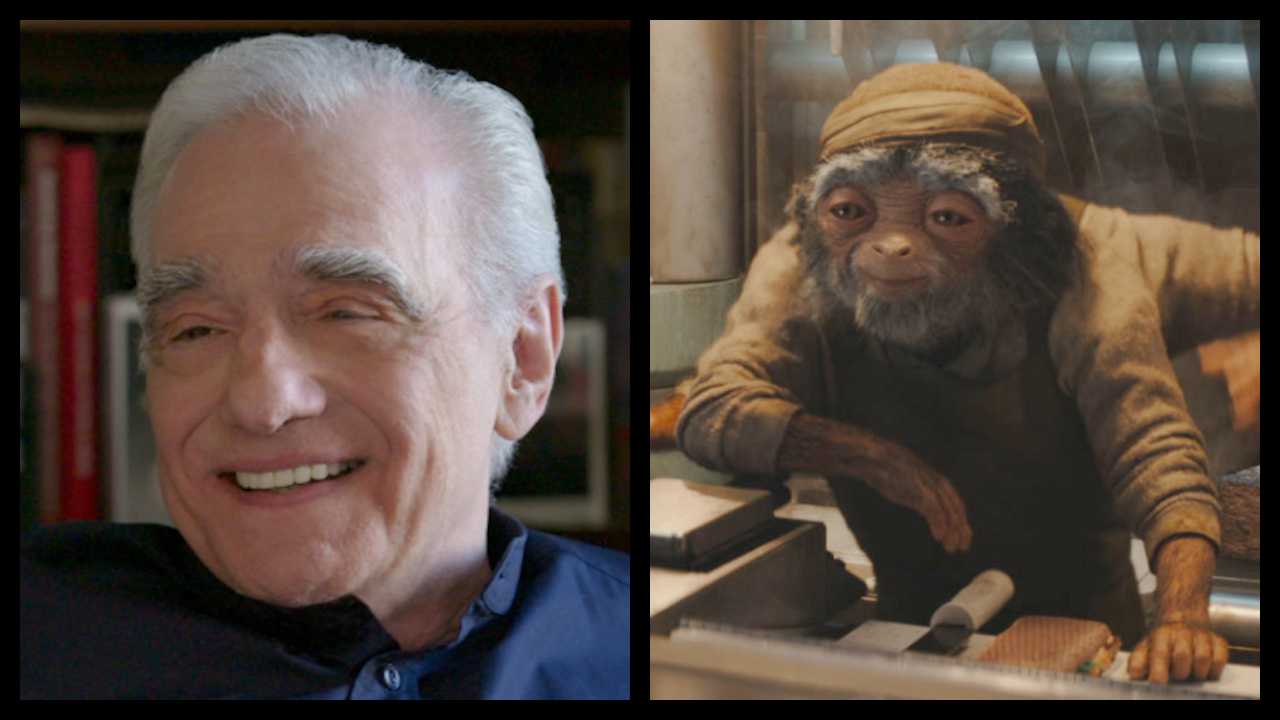
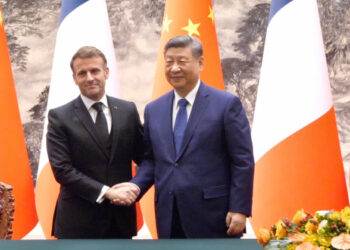
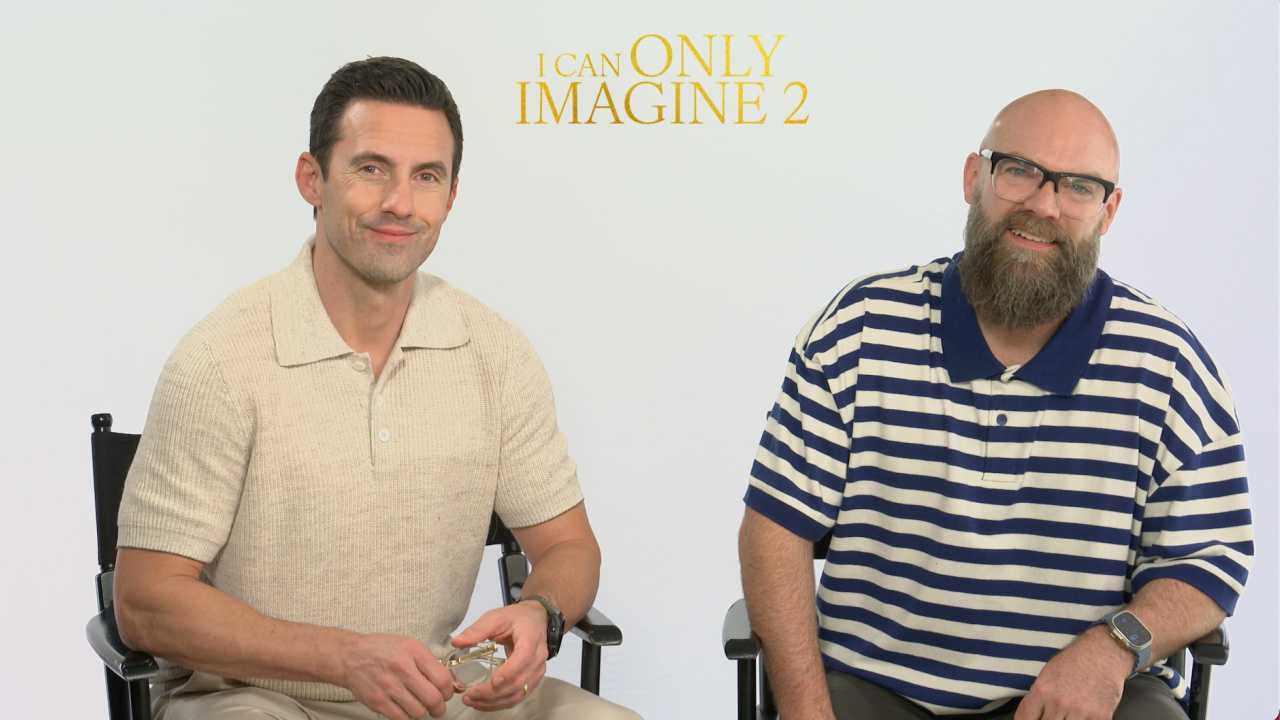
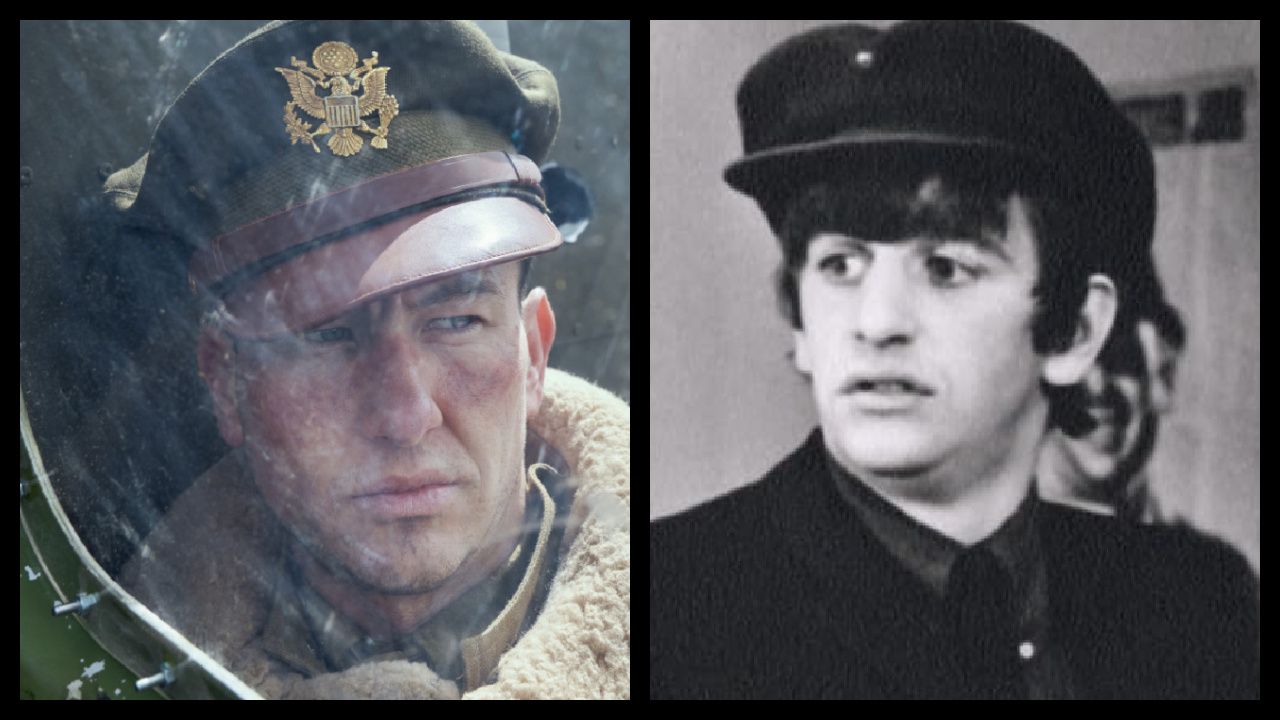



Discussion about this post